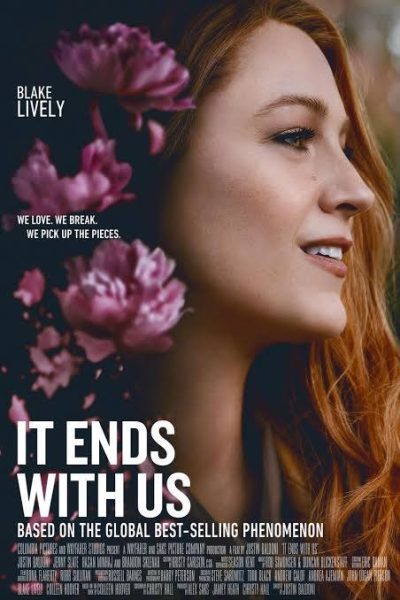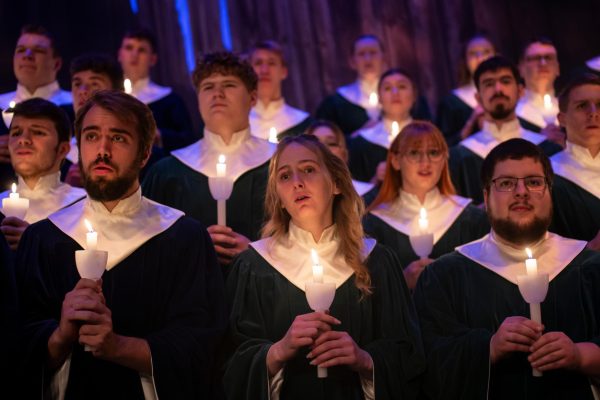The 22 Best Books for the End of the World (or What Feels Like it)
If you are anything like me, then it has felt like the world has been ending for approximately the last 2.5 years. We are only two months into 2022, and we’ve added a potential world conflict to the already potent mix of global pandemic, environmental catastrophe, and domestic instability. With near constant access to live updates on every one of these issues and more, it is easy to feel overwhelmed by the sheer magnitude of our current situation. That is why I have made it a daily habit to turn off all messaging platforms, social media, and cellular devices after the academic day is over, in a conscious decision to disconnect for my own well-being. In so doing, I rediscovered an almost forgotten enjoyment of mine: reading ‘just because’. Not reading for school, not to stay informed (please still do this, but be mindful of when and how it will impact you), but just for me. I found something amazing – some books made me feel less awful about the trajectory of our world. So here they are, for your perusing pleasure, the twenty-two books that made me feel a little better during the end of the world as we knew it. I hope they can bring you something too.
Disclaimer: These are all my own opinions, and by no means act as an exhaustive list. I tried to include a wide variety of genres, and also interest bases. Some of these books will contain material you might be sensitive to, so proceed with caution if you do not check the trigger warnings beforehand. I also attempted to split the list between those who deal with stressors either by confronting or distancing, so make of that what you will.
Educated by Tara Westover – This is the book I completed most recently. As a history major, I was really drawn to the memoir of a woman who needs to battle her family and unconventional upbringing in order to earn the same degree. Westover was the seventh child of extremist Morman dooms-dayers, and as such spent her entire childhood preparing for judgment day instead of attending school. With that in mind, her remarkable journey to BYU is a testament to perseverance and the allure of knowledge. I especially appreciated Westover’s inclusion of the grueling work it took to overcome her survivalist mentality and embrace a more gentle outlook on humanity and its future.
Wintering: The Power of Rest and Retreat in Difficult Times by Katherine May – I am grateful to this book for so many reasons, but the most important among them is that it gave me the language to describe what I have been feeling for about six months now. May describes ‘Wintering’ as “a fallow period in life when you’re cut off from the world, feeling rejected, sidelined, blocked from progress, or cast into the role of an outsider.” Just like the season it is named after, this is a temporary phenomenon, and May encourages readers to acclimate to their personal winters in much the same way as wild things do: slowing down, allowing for plenty of free blocks in your schedule, getting enough sleep, and spending more time resting. If you need nothing else but a way to justify rewatching The Office for the fifth time in bed instead of being “productive”, then I highly recommend this book.
Project Hail Mary by Andy Weir – For those that really loved The Martian, you will probably like Project Hail Mary. Written by the same author, the book follows a science teacher who is recruited to be an astronaut and prevent a massive extinction event caused by the radical decay of the sun’s luminosity. Unfortunately for him, he doesn’t know that, as he is alone on a spacecraft with no idea who he is. In Project Hail Mary, Weir returns to what he does best, which is writing about isolated men in an astronomical void performing complicated scientific and mathematical work, dumb-downed for a less STEM inclined readership. I appreciated the levity Weir infuses into a narrative that pivots on the premises that a galactic annihilation event is fast approaching, as well as the hopeful message it contains about inter-being cooperation and individual sacrifice.
The God of Small Things by Arundhati Roy – This book isn’t so much about wide scale destruction as it is about personal endings. I should note here that this book has several trigger warnings, so maybe skip it if you are being kind to yourself. However, if you’re in the mood to be devastated, this book is equally brutal and beautiful, and my favorite book on this list. It is the story of twins whose destiny’s are controlled by the concept of “Love Laws”, that dictate “who should be loved, and how. And how much.” The novel was written in response to the limiting effects of the Indian caste system, and how class stratification ultimately kills or corrupts the roots of things. It is here because I feel it is a book you should read before the world ends.
Pride and Prejudice by Jane Austen – Did I mention I’m also an English major? This classic is by far Austen’s best in my opinion, although I suppose “Persuasion” could just as easily have made an appearance. If you’ve only ever seen the 2005 adaptation, I would highly recommend reading the source material. It’s complex and nuanced, but has the added advantage of just being a delight. There are a couple books on this list I included just for the fact they will probably amuse and distract you from the world for a minute. You’re welcome!
The Best We Could Do by Thi Bui – If the idea of setting aside time for an entire book puts you off, this one has the added benefit of being illustrated with limited text. I think it would be an interesting exercise to read this in conjunction with Educated, as both touch on similar themes, such as the importance of learning, convoluted familial relationships, and the shifting allegiance of “home”. With the refugee crisis playing out in Ukraine, I feel that this memoir of displacement at the hands of regional conflict provides a more intense narrative to empathize with forcibly removed peoples, and their struggles to maintain hope and community.
Norse Mythology by Neil Gaiman – A bit of an outlier on this list, Norse Mythology is not a linear plot, but rather a collection and reassembling of Old Norse pantheon legends, as retold by a master storyteller. If you have the option, this is one book that works better in the audio format, with Gaiman’s narration in particular. It gives you a better sense of what it would have been like to hear these accounts firsthand. I included it here mainly for its last tale of Ragnarok, the foretold and ordained end of days. While it might sound terrible, and it is, I was honestly moved to tears listening to this story because of the life in it. Ragnarok is the apparent end of our world, but its devastation is just the genesis for another one, no better, no worse. You get the sense that the Norse (not the Luther variety, the real ones) lived with the knowledge of exactly how the world would end, and that it would suck, but it did not prevent them from living their best Viking lives. And there’s just something really uplifting about that.
Atlas Obscura by Dylan Thuras, Ella Morton, and Joshua Foer – We’ve all been essentially on house arrest for the past two years, and so why not flip through some of the weirdest places to visit on earth? If nothing else, it’s good fodder for a bucket list road trip this summer.
Station Eleven by Emily St. John Mandel – Oof, did this age… interestingly? Written in 2014, Station Eleven gained popularity (and an HBO mini-series) only recently, as it, in many ways, predicted the COVID-19 pandemic, although in this account it is a variant of the swine flu. We in the Midwest have the added déjà vu moment of being in the same location as a substantial amount of the book’s action, as it unfolds along the Great Lakes region. While things during our pandemic were never quite as bleak as Station Eleven, it still provides insights into plague mentality, the co-option of information and religion for power and influence, and how society rebuilds after the collapse of civilization.
Howl’s Moving Castle by Diana Wynne Jones – You may know the Tik Tok instrumental is from a Studio Ghibli movie, but did you know the movie itself is an adaptation of a book? I use the term adaptation lightly, because the character names are about where the similarities end. Howl’s Moving Castle and Ella Enchanted are the only two works of film where I can say I support major deviations from source plot, because all four pieces are excellent. The book Howl’s Moving Castle is decidedly less explicitly political than its film counterpart. Its main protagonists are less noble and more irritating, but what the movie has in scope and romance, the book makes up for in charm. It’s a quaint rainy day read, and my personal comfort novel. The world is just so cozy, and the characters are so refreshing and flawed without being hateable. 100% recommend for a low day.
Waiting for Godot by Samuel Beckett – The first and only theater piece on this list, Waiting for Godot is famously heralded as the play in which “nothing happens, twice.” I think the best way to experience this work is to read along while watching a production, because much of the significance of the text is improved upon through physicality. I don’t even know how to describe the plot of this piece, which is doubly frustrating as, again, not a lot really takes place. It defies recounting. Suffice it to say, Waiting for Godot is for you if you have been in a state of near constant existential crisis and stagnation for the past whatever. It won’t make you feel better, but you might feel something akin to solidarity.
Alice’s Adventures in Wonderland and Through the Looking Glass by Lewis Carroll – If you are pressed for time, Alice’s Adventures in Wonderland and its companion Through the Looking Glass are not that long. You could get through either in a day. I find that these books are a whimsical lens through which to view the utterly topsy-turvy world we have stumbled into, and reflects our collective discombobulation with the entire enterprise. Was that sentence fanciful enough for you Carroll?
When Breath Becomes Air by Paul Kalanithi – You will cry with this book. You will absolutely drench the pages with your tears, but sometimes that’s what you need to do, and if you are in need of an emotional release, this book will do it. This is a posthumously (hint) published autobiography written by neurosurgeon Paul Kalanithi during his battle with stage IV metastatic lung cancer. The book is about so much more than his diagnosis, but I think the parts that shine best are when Kalanithi is actively confronting his own mortality, and preparing for the inevitable eventuality of his prognosis. This story isn’t sad because of the ending (that’s devastating on its own), but because we got to have all the parts before it, all the ways in which we the audience get to know and understand Paul, and the abrupt absence of his voice in the end is what might kill you.
Will My Cat Eat My Eyeballs? Big Questions from Tiny Mortals about Death by Caitlin Doughty – A very different way to approach death. It wasn’t until earlier this year that I came to realize that I was woefully unfamiliar with the realities of death. I got the jist, but the particulars eluded me. In an attempt to better prepare for an approaching change in my relationship with death, I went on a deep dive, trying to find as many ways to make death as non-life-altering as possible. It was a spectacular failure, but this book stayed with me. If you are someone struggling to wrap your head around the absence of life, this book could potentially make it a bit more accessible. It’s also morbidly funny.
Beloved by Toni Morrison – I think it is honestly better to go into this book with as little knowledge as possible, so I’m not going to say anything about plot for this one, besides that if you are someone who needs to read trigger warnings before being comfortable with a text, you should check a generalized and non-specific list before beginning. Why do I think it’s a good end of the world book? I honestly can’t tell you, except that I believe the majority of Morrison’s works are, at their core, about healing and transformation, and that is what the world desperately needs right now.
The Canterbury Tales by Geoffrey Chaucer – The oldest work in this list, The Canterbury Tales are a collection of short stories or parables as told by a group of pilgrims on their way to Canterbury and in need of a way to pass the time. Likely inspired by The Decameron, which experienced a resurgence during the pandemic, Chaucer’s stories are incredibly varied in content and form, oscillating between comedy and courtly love, verse and prose. There’s something in it for everyone, with my personal favorites being “The Wife of Bath’s Tale” and “The Merchant’s Tale”. I think it might be a good idea to start this one when you’re absolutely slogging through life, one tale a day.
How to Do Nothing: Resisting the Attention Economy by Jenny Odell – Odell’s text is a rally cry to stop determining individual value in a society based solely on one’s productivity and output. This text’s thesis is that our most precious resource in life is our attention, and that capitalist notions of perpetual efficiency are draining us dry. By taking a step back, we may be able to reclaim our personal happiness and satisfaction. I recommend this book to those of you who have coped with the past three years by staying continuously busy. I think burying yourself in tasks is a reasonable response to external chaos, but it is equally valid to just stop for a day.
The Princess Bride by S. Morgenstern (Willam Goldman) – Goldman’s The Princess Bride is such a weird book. Like, the content is strange, sure, but not in any way that the fantasy genre is wholly unfamiliar with. No, the physical book The Princess Bride is weird, because it is simultaneously a retelling, an abridgment, a pseudo-history, a fairytale, and ultimately a parody/long game joke? It’s wild, but it’s definitely a fun ride, and has everything you probably love about the ‘80’s film and more. Recommended if you are looking for some campy fun at the end of a hard day.
The Kite Runner by Khaled Hosseini – This novel centers around the relationships between Amir, his childhood friend Hassan, and his father, during a period of radical change in Afghanistan. This book contains a Soviet invasion rather than a Russian one, but much of the immediate fallout is the same, particularly for the characters forced to flee their homeland for neighboring Pakistan. Trigger warnings apply for this book. I appreciate this novel’s ultimate message on personal guilt and redemption as necessitated by generational and ethnic conflict, and the prose itself is lovely.
One Hundred Years of Solitude by Gabriel García Márquez – For those of you that haven’t been able to stop singing “We Don’t Talk About Bruno”, I would like to introduce you to the text I think Encanto was almost definitely referencing. This book has magical realism and intricate familial drama galore, as well as a heavy heaping of Columbian historical context. If you yourself have felt isolated by COVID-19 precautions, either with your family or within the Luther bubble, this text will speak to that social removal.
If Nobody Speaks of Remarkable Things by Jon McGregor – The entire novel is dedicated to the documentation of one day in a London neighborhood, a day both monotonous and monumental in the lives of those who inhabit it. No detail is too small, no moment too inconsequential to be noted. If you can pick up the rhythm of the prose, the world of the book opens itself to cinematic comparisons, and will leave you breathless by the end. I think this work resuscitated for me the wonder of “normal” days. You know, those days when the world isn’t in immediate danger of collapse.
Somebody’s Daughter by Ashley C. Ford – Trigger warning for this one as well. A powerful memoir about growing up without pivotal figures in an often tense environment, Ford’s account of her life thus far first and foremost centers her truth, and the things she and her body experienced. It is challenging to get through some portions of this book because of the pain it gives form. You may need to put it down and return later, but I beg of you, finish it. The reward at the end is worth it. Like the book at the start of this list, my lasting impression of Somebody’s Daughter is one of perseverance and survival, and these are qualities we desperately need right now.
Bonus Recommendation:
Inside by Bo Burnham – If you are not the reading type, and nothing could convince you otherwise, I offer up this audio/visual masterpiece. I think it should be of national outrage that this film received no Oscar nominations, but I digress. Inside is the best pandemic movie, hands down. It is bold, it is brutally honest and real, it is funny as hell, and on top of that manages to churn out some of the best beats of the year. The only negative: it fueled Tik Tok for about a solid month there, but I think that trend is thankfully over.





